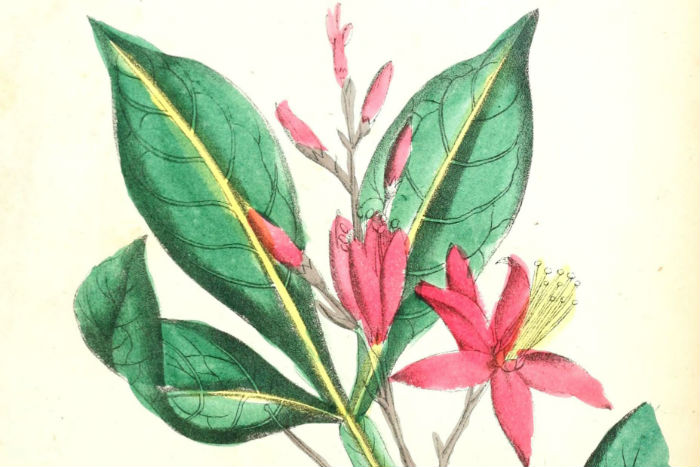Send to a friend
The details you provide on this page will not be used to send unsolicited email, and will not be sold to a 3rd party. See privacy policy.
A French research institute has pledged to share possible benefits from a controversial plant-based medical patent with the people of French Guiana, who use the plant it comes from as a traditional remedy.
The state-funded Research Institute for Development (IRD) had come under fire for patenting a compound from the Couachi plant without acknowledging the indigenous people who pointed scientists to it, or ensuring they would get a share from potential profits.
The plant, whose scientific name is Quassia amara, was analysed in a 2005 study of antimalarial remedies in French Guiana, a French overseas territory in South America. In the study, four IRD researchers — including two of the six “inventors” named in the patent application filed in 2010 — said that the plant, “whose antimalarial activity has already been demonstrated, was the species most frequently used as antimalarial for curative and preventive purposes”.
Local people brew Couachi into a tea to reduce the risk of malaria infections.

The patent for the plant’s antimalarial compound was granted by the European Patent Office (EPO) in March 2015. Six months later, a French human rights NGO challenged the patent, saying it does not meet the “novelty” and “inventive step” criteria required to grant it.
“Our opposition does not aim to stop the IRD’s research activities against malaria, but to underline the fact that IRD should apply more ethical practices towards indigenous people,” says Marion Veber from the Danielle Mitterrand Foundation — France Libertés, the NGO opposing the patent.
“According to international principles, local and indigenous populations have to be considered as true partners and holders of rights, in particular on the immaterial and material cultural heritage that they are sharing as part of scientific projects,” the NGO wrote on 25 January.
The indigenous people of French Guiana echoed the foundation’s criticism in a statement saying “the IRD abused the knowledge of the Guyanese population”.
The patent opposition proceedings might take around 18 months, says an EPO spokesperson.
In January, the IRD rejected the Mitterrand foundation’s accusations of biopiracy, the process of stealing and profiting from natural resources. The institute said in a statement that it would ensure that the fruits of this “and other patents” would be shared within a public-private partnership to guarantee the “widest possible access” for local populations.
Soon after — and while it did not renounce the patent — the institute adopted a more conciliatory tone.
On 5 February, the institute said it would propose an agreement, to be signed by the French and Guianese authorities, to guarantee “an egalitarian sharing of research results and any economic and financial benefits stemming from the patent’s exploitation”.The deal will also lay out a “commitment” to inform local communities about the scientific process, and to guarantee that populations can access a possible new antimalarial drug based on the patented molecule, known as Simalikalactone E, at a fair price and under fair conditions, the institute says.
Set up in 1937 to study French colonies, the IRD has since sought to distance itself from its colonial past. It works in more than 50 countries to carry out joint research with local scientists on issues relevant to development.
References
M. Vigneron and others Antimalarial remedies in French Guiana: A knowledge attitudes and practices study (Journal of Ethnopharmacology, 26 April 2005)














